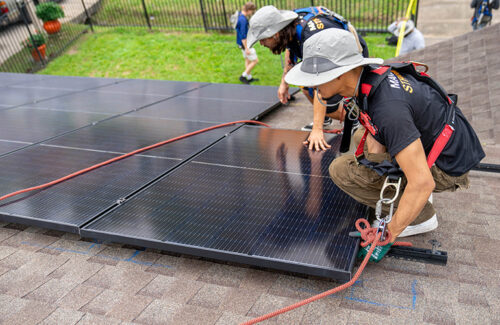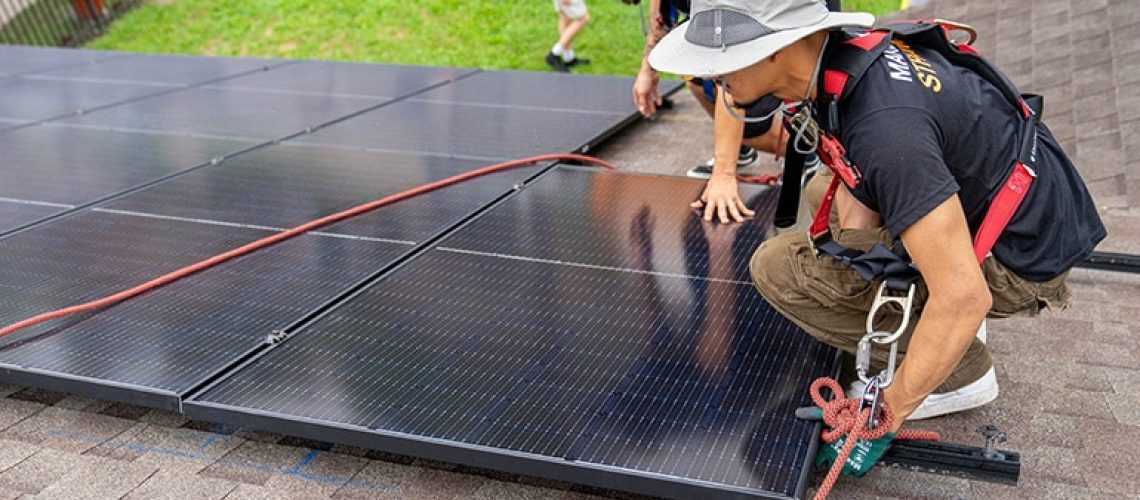The NC Clean Energy Technology Center (NCCETC) has released its Q1 2024 edition of “The 50 States of Solar.” The quarterly series provides insights on state regulatory and legislative discussions and actions on distributed solar policy, with a focus on net metering, distributed solar valuation, community solar, residential fixed charges, residential demand and solar charges, third-party ownership and utility-led rooftop solar programs.
Q1 2024 Policy Action on Net Metering, Rate Design, and Solar Ownership
The report finds that 43 states, plus the District of Columbia and Puerto Rico, took some type of distributed solar policy action during Q1 2024, with the greatest number of actions continuing to address net-metering policies (56), residential fixed charge or minimum bill increases (42) and community solar policies (37). A total of 163 distributed solar policy actions were taken during Q1 2024, with the most actions taken in California, Arizona, Maine, Washington, Connecticut, Illinois, New York, Oregon, Vermont and Virginia.
The report identifies three trends in solar policy activity taken in Q1 2024: (1) states considering legislation to enable community solar, (2) net-metering reform efforts moving to new states and (3) states clarifying net-metering rules for customers on time-of-use rates.
“The evolution of community solar programs continues this quarter,” noted Vincent Potter, Senior Policy Analyst at NCCETC. “Maryland’s permanent program regulations are being fleshed out for implementation after statutory changes last year, and other states are updating their programs to meet customer demand.”

Solar United Neighbors
The report notes the Top 5 distributed solar policy actions of Q1 2024:
- Massachusetts regulators allowing net-metering credit transfer across utilities;
- Delaware lawmakers initiating a net-metering cost-benefit study;
- Virginia legislators expanding shared solar programs;
- The West Virginia Public Service Commission approving net-metering reforms; and
- The Arizona Corporation Commission authorizing a new grid access charge.
“While some of the larger solar markets have revised their net metering rules in recent years, we continue seeing states with smaller markets consider similar reforms,” said Brian Lips, Senior Policy Project Manager at NCCETC.
View the 50 States of Solar Q1 2024 Quarterly Report Executive Summary here.
News item from NCCETC



